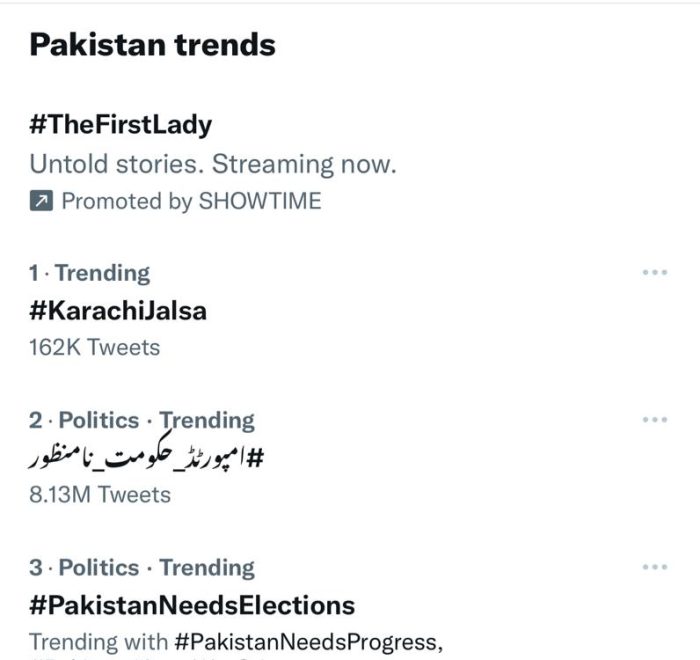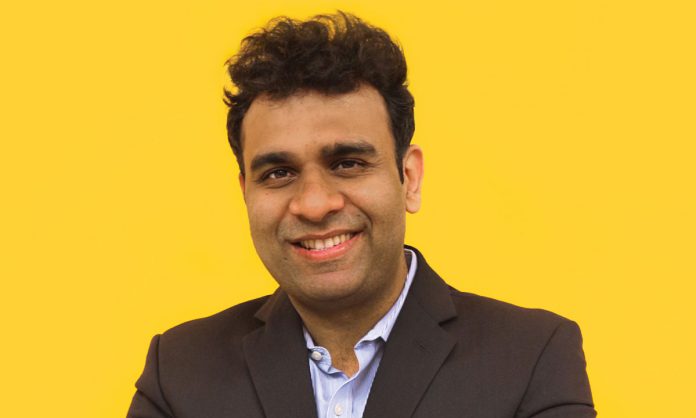In the realm of politics, the art of branding and narrative building has long been crucial for political parties seeking to capture the hearts and minds of voters. Traditionally, television ads, banner ads, jalsas (political rallies), and charismatic speeches formed the cornerstone of political marketing strategies in Pakistan. However, the landscape of political communication has undergone a monumental shift in recent years, with the advent of social media revolutionizing the way politicians connect with their constituents. Social media’s meteoric ascent has ushered in a new age of political marketing predicated on captivating storylines and narrative frameworks, which in turn has revolutionized the way people consume news and information.
Gone are the days when politicians solely relied on conventional means to reach their target audience. The emergence of social media has democratized political communication, providing political parties with an unparalleled platform to engage directly with voters, influence public opinion, and shape narratives to their advantage. Today, political parties in Pakistan understand the immense potential of social media and have established dedicated teams that toil away around the clock to plan and carry out effective campaign strategies. The shift to social media has not only transformed the channels through which political parties communicate but has also revolutionized the way campaigns are designed.
Instead of relying solely on static TV advertisements or limited face-to-face interactions, political parties are now investing in dynamic social media campaigns that prioritize storytelling, emotive appeals, and interactive content. These campaigns employ a blend of captivating visuals, compelling narratives, and strategic messaging to create a lasting impact on the audience. By understanding the preferences and behaviors of their target demographics, parties can tailor their content and ad placements to maximize engagement and persuasion.
At the forefront of this digital revolution in Pakistan’s political landscape is the Pakistan Tehreek-e-Insaf (PTI), which has emerged as one of the first political parties in the country to harness the power of social media for narrative building and persuasion because the party always stood with the stance of catering to the youth. Recognizing the need to adapt to the changing times, PTI took a bold step to embrace social media as a strategic medium to promote its ideologies, mobilize supporters, and challenge prevailing perspectives. By leveraging the vast reach and targeting capabilities of social media platforms, PTI has effectively utilized its dedicated social media teams to not only disseminate its message but also actively engage with the electorate on various issues.
In our quest to unravel the secrets behind the monumental impact of social media on political campaigning, we had the opportunity to engage in a captivating conversation with Jibran Ilyas, the ingenious mind behind Pakistan Tehreek-e-Insaf’s social media strategy. As the social media secretary of PTI, Ilyas has been at the forefront of harnessing the immense potential of this digital realm, driving the party’s narrative-building efforts and reshaping the political landscape.

Our efforts to secure an interview with the social media cell of Pakistan Muslim League (N) unfortunately fell through even though they agreed to it, but somehow things didn’t work out at the last minute. Speaking of what works in the realm of social media, guided by the belief that authenticity triumphs over traditional marketing, Ilyas emphasized the importance of heartfelt messaging. “When you do something with all your heart, the message always conveys,” he passionately proclaimed. Whether capturing images of vibrant jalsas or documenting protests and rallies, the team is asked to focus not just on visuals but also on the captions that would truly resonate with the people. It is about capturing the essence of the moment and crafting captions that could sway minds and inspire action toward PTI’s vision.
Recognizing the shifting dynamics of communication, Ilyas emphasized the significance of social media as the pulse of the nation. Through this digital medium, people showcased their real strengths and opinions, amplifying their voices on various platforms. While many were slow to grasp its potential, PTI and especially Imran Khan understood the value of social media and public opinion, adapting their strategies based on feedback received. Addressing skeptics who accused PTI of running paid social media campaigns, Ilyas confidently debunked their claims.
He emphasized that PTI’s success was not determined by lavish expenditures but rather by a dedication to the truth. “If it were about money, why aren’t other parties with more resources able to compete with PTI’s social media?” he questioned. It was the truth that resonated and created a lasting impact, transcending monetary influence. When asked about the most relevant and fruitful strategies that helped in crafting their narratives, Ilyas mentioned that PTI employs strategic use of hashtags, ensuring organized messaging reflective of truth and logic.
While each social media platform has its own importance, Ilyas acknowledged the unique influence of TikTok among the masses, particularly the youth, and stated that the numbers on TikTok are almost always tripled as compared to any other platform. Talking about the most effective campaigns ever run by social media teams, Ilyas boosted about “Naya Pakistan” campaign in 2013, a movement that still faces mockery but managed to capture the nation’s attention. He exclaimed that this milestone campaign inspired a belief among the people that change was not only possible but within their grasp.
Reflecting on other impactful campaigns, Ilyas fondly recalled the potency of the Panama Papers narrative and the successful “Haqeeqi Azaadi” campaign. According to him, the latter, in particular, struck a chord with the masses, as it highlighted the significance of dignity and became a rallying cry that resonated deeply within the hearts of the people. These campaigns exemplified PTI’s commitment to creating narratives that mattered, evoking emotions and driving real change.
When it came to measuring the response to their campaigns, Ilyas acknowledged that numbers and hashtags were not the sole indicators of success. Rather, PTI employed “Sentiment Analysis” to gauge the pulse of the public. By studying the sentiment expressed, they gained insights into public opinion and adjusted their strategies accordingly. While biases existed, Ilyas emphasized the neutrality of data, admitting that it served as a powerful tool to guide PTI’s decisions and narratives. Credibility emerged as the hallmark of PTI’s social media presence, setting them apart from others. Ilyas emphasized the importance of maintaining credibility, ensuring that every piece of information shared was vetted and accurate.
Despite facing accusations of being ill-informed or employing paid setups, Ilyas remained firm in his belief that PTI’s credibility stemmed from their commitment to the truth. Their genuine engagement with the public allowed their trends to persist on social media platforms, further solidifying PTI’s impact. Addressing the challenge of fake news, Ilyas agreed with the prevalence of misinformation in the age of social media and the need to counter fake news with their core messaging.
However, he seemed optimistic and said that “People today have themselves started questioning news, and we don’t have much to counter because they have started putting their logic into it.” Ilyas trusted that through their unwavering commitment to truth, fake news would be called out and ultimately countered.
“Every lead has their own convictions, and as a lead, I always say that rather than playing on someone else’s pitch, we should be propagating our message more,” he replied. For Ilyas, the core of PTI’s social media campaigns was to promote self-esteem and dignity; with the messaging echoing the sentiment of “Awaam Taqat Ka Sarchashma Hai”(The people are the source of power).

